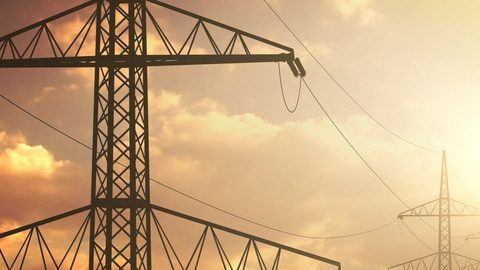What is a public safety power shutoff? What should you do during it?

ALBUQUERQUE, N.M. — PNM has implemented its first-ever public safety power shutoff Thursday afternoon in the East Mountains to mitigate wildfire risk.
A public safety power shutoff, or a “PSPS”, is something new as power companies more fully recognize how power lines can cause potentially devastating wildfires, as in the case of the McBride Fire in Ruidoso.
What is a public safety power shutoff (PSPS)?
A PSPS is done when extreme weather conditions force a power company, like PNM, to turn off the power on parts of its system. They implement a PSPS to avoid the scenario of a power line starting a wildfire.
During a PSPS, the power is shut off. Customers will receive updates via text, email or phone call, as crews inspect power lines and equipment for safety before restoring power. Then, customers will be notified when restoration begins and when power is fully restored.
What should you do before a public safety power shutoff (PSPS)?
Here are some tips:
- Have a cooler and ice on-hand to preserve food
- Get your emergency power outage kit together
- Water
- Food
- Nonperishable
- Easy-to-prepare meals
- Flashlight and batteries
- Avoid candles due to fire risk
- Battery-powered or hand-crank radio
- Medications and first aid kit
- Cell phone and chargers
- Consider a backup power bank
- Important documents
- Copies of insurance, medical records and emergency contacts
- Cash and personal hygiene items
If you know someone who relies on electric-powered medical equipment, have a backup power source ready. If you’re a PNM customer, you can register here for their LifeWatch program to receive notifications.
What should you do during a public safety power shutoff (PSPS)?
You should keep the refrigerator and freezer doors closed so food can stay fresh. You should also turn off any appliances (e.g., stoves) and unplug electronics (e.g., TV, game system) to prevent damage once the power turns on again. It’s also recommended you keep at least one light on so you know when power is restored.
In the winter, wear layers of warm clothing and don’t use your oven as a source of heat. If the power is out for a prolonged period of time, plan to go to another place that has heat so you can stay warm.
In the summertime, it’s recommended you go to the lowest level of your home to stay cool. It’s also recommended you wear lightweight, light-colored clothing and drink plenty of water and go somewhere cool that isn’t affected by the outage, if you can.
Consider buying a generator and, if you do, consult with an electrician or an engineer before purchasing and installing it. Only use generators away from your home and never run it inside a home or garage or connect it to your home’s electrical system.
For more information, visit this website.

